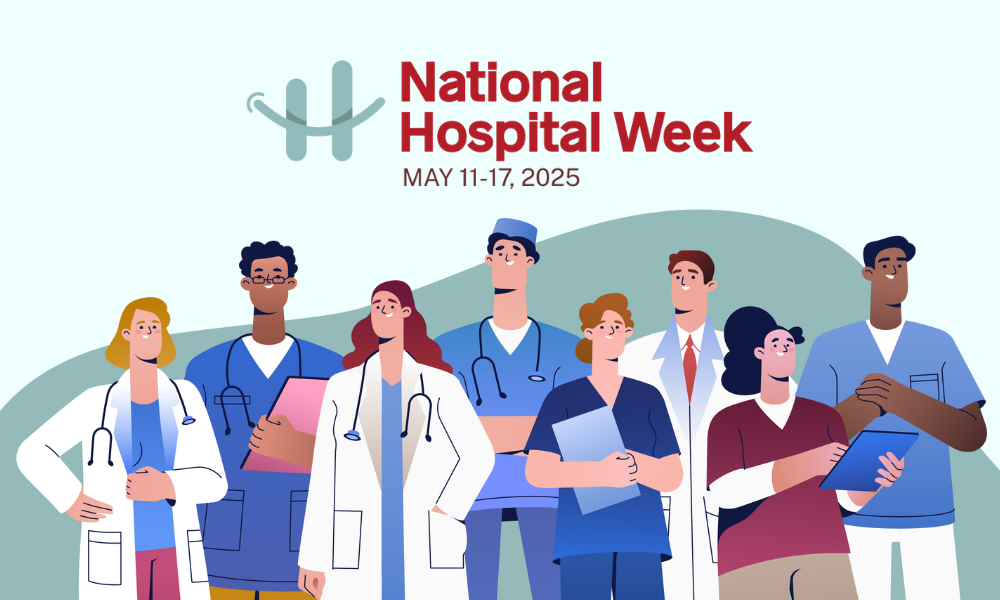An AI Rx for Providers
Welcome to Locums CME, Locumpedia’s bi-weekly news roundup that helps physicians and APPs maximize their locum tenens lifestyle.
Our lead story: AI tools like ChatGPT and Claude are making their way into healthcare, and while they offer promising efficiencies, they’re not without their pitfalls. According to Medical Economics, responsible and ethical AI use is crucial, particularly for locum tenens providers who must quickly adapt to new systems while keeping patient care at the forefront. Understanding the strengths, limitations, and ethical considerations of AI in medicine isn’t just helpful—it’s essential.
Also in this edition of Locums CME: Hayes Locums suggests ways to smoothly transition into a locums lifestyle; CompHealth discusses how locum tenens NPs and PAs experience a significant income increase; Plus, Caliber Healthcare Solutions provides six methods to prepare for your first locums assignment, and more.
Continue your locums education with Locums CME 49 below.
10 Best Practices for Using AI Tools at Your New Assignment
January 24, 2025 | Medical Economics
Each new locum assignment means different processes, procedures, and tools; it is crucial to understand them from the beginning. Prepare now for any assignment by getting comfortable with the following 10 best practices for using AI, which translate across facilities.
- Use AI thoughtfully. If a tool appears to do everything flawlessly, it likely has faults. Double-check results and clinical decisions.
- Focus on the underlying data. AI-produced results are only as accurate as the information that feeds them. Confirm the accuracy, representativeness, and completeness of patient demographics, lab results, and EHR data.
- Acknowledge and mitigate algorithmic bias. The output won’t be correct if AI’s training datasets are not representative. Do your due diligence to ensure that AI tools are not expressing or amplifying biases, which can lead to misdiagnoses and underdiagnoses.
- Continue to insist on clinical validation. Some tools perform well in initial studies, but researchers have yet to prove that they generalize to different clinical settings or populations. Evaluate and peer-review the performance of each AI tool based on the patient population.
- Interpret with care. AI outputs inform diagnoses; they don’t dictate them. Continue to be cautious when interpreting results and relying on your professional expertise to inform decision-making.
- Integrate into the workflow and team collaboration. AI tools work best as part of an integrated workflow and with team buy-in. This integrated workflow and team buy-in helps mitigate inefficiencies and inconsistencies.
- Seek AI training and continuing education. AI literacy is essential as technology advances and becomes more commonplace. Sign up for courses to help you with daily tasks and enhance your resume.
- Follow privacy, security, and regulatory requirements. Ensure compliance with HIPAA and institutional security protocols. If you are unsure when you arrive at a new assignment, ask specific questions about AI tools you have used previously.
- Stay current. Outdated AI models may not provide recommendations that meet the most up-to-date clinical practices, patient demographics, and disease profiles.
- Keep your eye on patient-centered care. You excel at providing quality patient care. Maintain communication-based care; let your AI tools be your assistants, not replacements.
Preparation Is Key to Locum Success
January 9, 2025 | Hayes Locums
Resolutions are not just for the new year. As a locum tenens provider, you have greater control over your career and how each assignment supports your goals, so it’s helpful to determine what you need to accomplish them.
- Become clear in your vision. Are you focused on working with specific patient populations, technologies, or procedures? Are you interested in spending more time with loved ones or exploring new locations? List your professional and personal must-haves.
- Position yourself for success. Familiarize yourself with tools or pursue certifications to help you meet your professional goals.
Locum tenens allows you to stay nimble and pivot as much as you want or need over the year. By keeping your goals current in your mind, you can articulate them to your agency and choose the locum assignments that align with your vision.
Competitive Pay for Short-Term Assignments
January 16, 2025 | MASC Medical
Depending on the assignment, locum providers can earn significantly more per hour than full-time staff. The key is understanding the factors that impact this pay gap, including locations experiencing extreme physician shortages and the most in-demand specialties.
Rural areas may pay a premium to attract locum physicians. According to 2022 data, Mississippi paid 140% of the median locum tenens pay.
Some specialties show a remarkable positive differential between hourly rates for locum tenens and full-time physicians:
- 40% Anesthesiology
- 18% Emergency Medicine
- 29% Hospitalist
- 8% OB/GYN
Enjoying a variety of high-benefit assignments means staying on top of your game behind the scenes as well. The following are three foundational steps for successful locums:
- Communicate well. This includes regular check-ins with recruiters and actively listening to each facility’s needs.
- Get in the travel groove. Locums are wise to establish a basic travel plan they can tailor to each assignment. This plan should include a standard packing list, organized travel supplies always ready to use, and a plan for pets, plants, and other home responsibilities.
- Keep learning. Technology such as telehealth and AI tools will continue revolutionizing the medical world, including locum work. Staying current makes a locum provider a stronger assignment candidate and reduces the stress of learning each facility’s systems.
NPs and PAs Reap Financial Rewards with Locum Tenens
January 6, 2025 | CompHealth
Many NPs and PAs find financial success working locum tenens, appreciating the hourly rate and overtime pay. At the same time, they can save on living expenses since assignments often cover room and board and earn benefits such as a 401(k) match. Plus, when assignments are in places you want to explore on your personal time, being a locum means your travel there and back home is covered. All of this can mean paying off student debt and growing savings quickly.
The average hourly pay for in-demand locum NP and PA specialties is often higher than similar permanent positions:
- General surgery: $80–$110
- Cardiology: $80–$100
- Oncology: $80–$100
- Critical care: $75–$100
- Urgent care: $70–$90
NPs and PAs can position themselves for even higher pay by building their resume and being open to various assignments. The factors that increase locum providers’ pay include:
- Provider’s knowledge of advanced or in-demand procedures
- Facility’s location, be it in a city with a high cost of living or an underserved remote location
- Higher patient volume
Working with a locum staffing agency can help maximize financial benefits:
- Their recruiters are highly skilled at negotiating pay, schedule, and time off
- The agency’s malpractice insurance covers locum providers, although the types of coverage differ by agency.
- The agency may offer health insurance, housing and travel costs, and other benefits.
- The agency may assist with credentialing, licensing, and privileging fees.
Locum clinicians are integral to our medical system, and their compensation reflects that.
6-Step Road Map to Your First Locum Assignment
January 22, 2025 | Caliber Healthcare Solutions
Higher pay, schedule and location flexibility, professional growth, and reduced burnout are many reasons to explore locum tenens. Whether you are a new graduate or a seasoned physician or APP, follow this road map to a new career as a locum:
- Obtain your license. You must have an active, unrestricted license in each state you want to practice.
- Enhance your education. Up-to-date certifications in specialties or technologies improve employability and increase pay potential.
- Update your resume. Highlight your most recent and most impressive skills, experiences, and successes.
- Partner with a staffing agency. These experts help you manage matters around credentialing, travel, and insurance, leaving you more able to focus on your professional and personal goals.
- Choose your assignments. Locum tenens offers opportunities across the country and in every specialty.
- Start your first assignment with the confidence that you’ve set yourself up for success!
Physician Wellness Retreat
The Benefits of Being “The New One”
January 24, 2025 | KevinMD.com
The medical field values consistency. If a patient can see the same physician over many years, the doctor understands that individual’s unique baselines and may more quickly notice changes. Locum physicians work against that norm. On short-term assignments, locums bridge gaps; their impact is lasting, but they alone do not form the foundation of a patient’s care. Physicians new to an assignment, including locum physicians, offer the facilities and patients they work with other invaluable qualities.
- Fresh eyes on a patient level: A locum physician meets a patient with no ingrained, even instinctual, understanding of their health and situation. They must ask questions and listen carefully. The patient may be more willing to consider a different test or course of treatment.
- Fresh eyes on a colleague and facility level: A locum physician is a guest in their new facility, but that doesn’t mean they should resist sharing the best practices, experiences, and research they’ve gained in other roles and assignments.
- A beginner’s mindset: As the new person, a locum physician has “permission” to ask questions more than they do in a permanent role where people expect them to “know everything.” They may also feel more able to convey this information at a level accessible to patients or junior staff members.
Physicians Are Part of the “Whole of Society” Approach to Well-Being Initiatives
January 23, 2025 | SmartBrief
Locums can help strengthen facility-level well-being initiatives for physicians and APPs by engaging in the initiatives of the facilities where they are on assignment:
- Respond to feedback requests. Healthcare leaders must be able to measure how, why, and to what extent their efforts succeed. By aggregating data collected from individual physicians and APPs, including locum tenens, they can provide visibility and accountability and make necessary adjustments.
- Collaborate across teams. Addressing provider wellness requires cross-department communication, feedback, and systems sharing, from patient cases to facility-sponsored programs. A “whole-of-society” approach in which various stakeholders contribute is necessary.
When an Appreciation Cookie Isn’t Enough
January 13, 2025 | Medscape
As the country faces unprecedented physician shortages and burnout numbers are slow to shrink, “resilience” has become a loaded term for providers.
- Personal resilience isn’t enough in the fight against burnout. In fact, “resilient” physicians may be most at risk for burnout. A study published in JAMA reported that physicians in emergency medicine had among the highest resilience scores. Yet the highest percentage of physician burnout is found in emergency medicine.
- Resilience is too often supported superficially or disingenuously. Baked goods in the staff room do not replace professional mental health treatment, paid time off, and reduced administrative burden. Training physicians to “be well” in a system that feels increasingly toxic to healthcare providers feels like a mismatched approach.
Still, physician resilience is one leg of what some experts call the three-legged stool of physician well-being. While facilities are responsible for practice efficiency and a culture of wellness, physicians retain control of their actions and reactions as they relate to their health. A good question to ask themselves is, “Am I using all the resources I have, no matter how basic?” Physicians can review their benefits, like vacation time, and use them; seek continuing education in mindfulness and other techniques; and become more transparent about the exact issues at their job with ideas for actionable steps to present to leadership.
Doctor’s Notes
An Increasing Number of NPs Are Opening Practices
January 25, 2025 | KSL.com
NPs are vital to the continuity of care in most communities, and their role has expanded in states nationwide. The physician shortage and an aging population with more consistent and complex needs mean that wait times to get an appointment with a doctor are long. Still, NPs are stepping in and increasing care availability. Patients who thought only MDs could care for them are discovering that ARNPs, CRNPs, CNPs, and many other types of nurse practitioners offer much of the same care and bedside support as physicians.
More than half of all states (27), plus Washington, DC, allow NPs to practice independently, evaluating patients, ordering tests, and prescribing medication without a physician’s sign-off. This also means they can open a practice. In states primarily rural with spread-out healthcare facilities, like Utah, the 27th state to approve “full practice authority,” this expansion of the NP scope has been welcomed.
A Celebration of a Life of Nursing Service: Loretta Ford
January 23, 2025 | University of Rochester
 Loretta Ford, cofounder of the NP model in 1965, died at the end of January at age 104. She pioneered the nursing field and, alongside pediatrician Henry Silver, created the first nurse practitioner training program in pediatrics at the University of Colorado Medical Center.
Loretta Ford, cofounder of the NP model in 1965, died at the end of January at age 104. She pioneered the nursing field and, alongside pediatrician Henry Silver, created the first nurse practitioner training program in pediatrics at the University of Colorado Medical Center.
Ford began her nursing career at age 16 in New Jersey and then served as a US Army Air Force nurse during World War II. After returning to the States, she earned a bachelor’s degree in nursing and a master’s degree in public health from the University of Colorado College of Nursing. She was inducted into the National Women’s Hall of Fame in 2011, and in 2020, USA Today named her one of its Women of the Century. On the eve of her 100th birthday, Ford was honored with the Surgeon General’s Medallion, awarded for exceptional public health and medicine achievements.
Today, nearly 400,000 NPs practice across the US, and the job is one of the fastest-growing areas of healthcare.
APPs Top Best Jobs in Healthcare
January 14, 2025 | Advisory Board
For its 2025 list of Best Jobs in Health Care, U.S. News & World Report used data from the U.S. Bureau of Labor Statistics to identify jobs with the most actual and projected openings between 2023 and 2033. Then, it ranked those in terms of best pay, job safety and stability, work-life balance, and those that met industry-specific requirements.
NP, PA, and CRNA are all among the top five best healthcare jobs and the best jobs that pay at least $100,000 annually. Of special note, NP ranked number one in U.S. News’ 100 Best Jobs, out of all industries, and PA ranked number three.
Locums + Planning + Diverse Strategies = Financial Independence
January 26, 2025, | Let’s Locums
Physicians and APPs who choose locums are naturally interested in flexibility, diversity, and adventure. This perspective can help them establish financial independence. In addition to their various medical assignments, they may want to accept complementary opportunities such as medical consulting or writing and side opportunities such as real estate investment. A recent Let’s Locums podcast episode highlights one locum urologic surgeon’s path and offers ideas for all providers to consider.
Sponsored Content
Become an Expert in Your Wealth
January 13, 2025 | The Doctor’s CPA
Building and maintaining a healthy financial life requires thoughtful planning and strategies designed specifically for the realities of the medical profession. Here are six practical steps you can start taking today:
- Optimize your earnings. Leverage every opportunity to increase your take-home pay, including working locums. When you have room to negotiate, ask for meaningful perks with lasting rewards, like funds for continuing education. Check in on industry standards to know what’s possible, and then aim higher.
- Build passive income. Monetize your medical expertise by consulting on educational platforms, reviewing legal cases, or working with healthcare startups. Look outside your profession for real estate investments and dividend-paying stocks.
- Reduce your tax burden. Max out tax-advantaged accounts. Leave no deductible expense unclaimed. Take advantage of tax credits.
- Invest wisely. Meet annually with a financial advisor who understands wealth management for physicians.
- Manage debt effectively. Refinance or consolidate loans, especially student debt. Choose the mortgage that’s best for you. Prioritize the repayment of high-interest debts.
- Protect and preserve wealth. Create—and stick to—a budget. Protect against risks with different insurance plans. Build an emergency fund. Plan your estate.
The Doctor’s CPA specializes in helping physicians navigate the complexities of wealth management. Schedule a first consultation to prepare a personalized plan that aligns with your goals.









